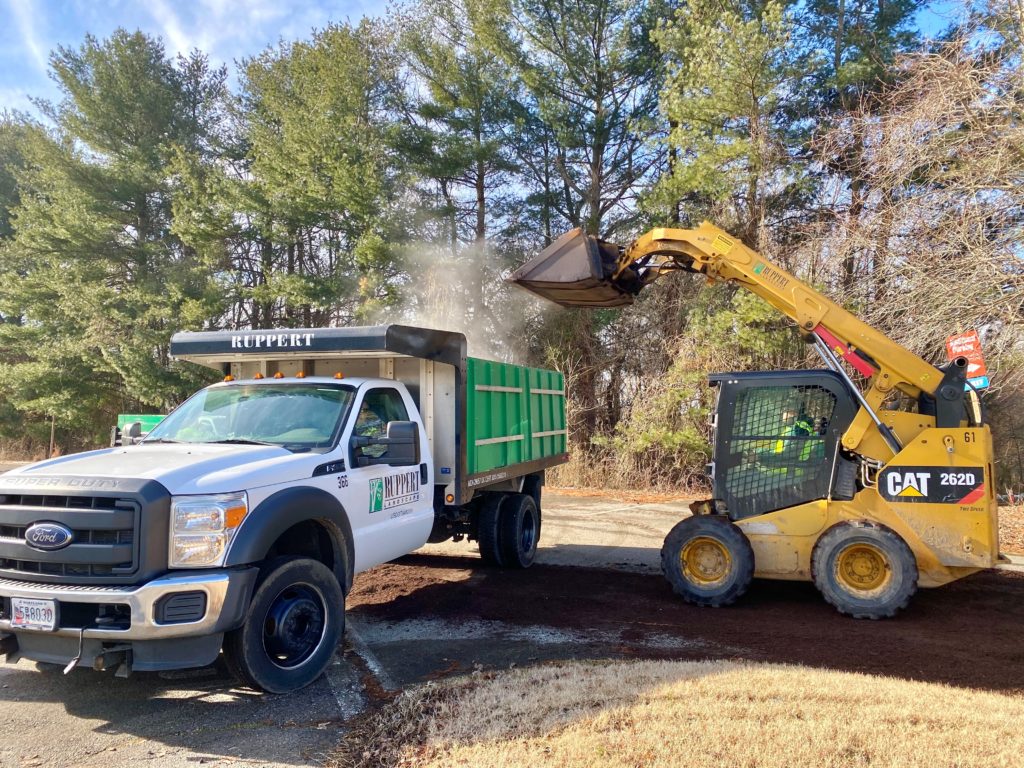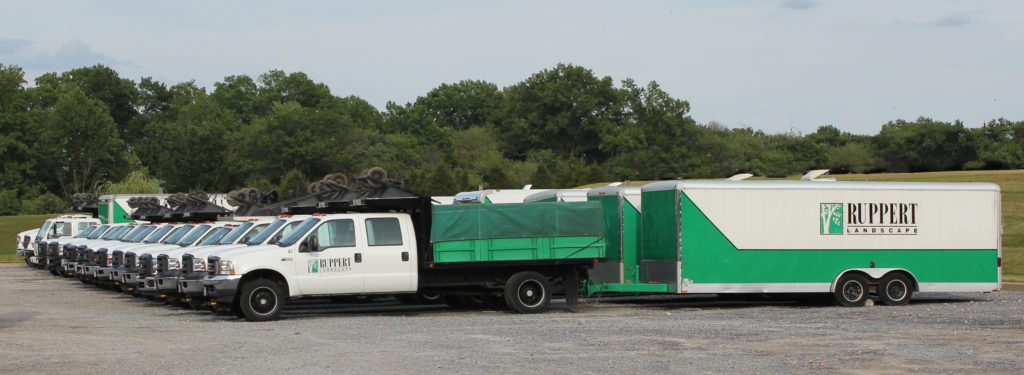By Greg Franklin, VP of Fleet, Facilities and Safety
 There are many ways for a company to manage their fleet, from leasing equipment to owning and maintaining their own assets. While leasing has its advantages (flexibility, lower upfront costs, outsourced maintenance) and disadvantages (higher long-term costs, lack of equity, dependency on dealer for repairs), we have always chosen a strategy that involves owning and maintaining our own vehicles and equipment (along with many of our facilities). This strategy has proven to be more cost-efficient and beneficial in the long run, and it allows us to take ownership and harbor a sense of pride in our fleet.
There are many ways for a company to manage their fleet, from leasing equipment to owning and maintaining their own assets. While leasing has its advantages (flexibility, lower upfront costs, outsourced maintenance) and disadvantages (higher long-term costs, lack of equity, dependency on dealer for repairs), we have always chosen a strategy that involves owning and maintaining our own vehicles and equipment (along with many of our facilities). This strategy has proven to be more cost-efficient and beneficial in the long run, and it allows us to take ownership and harbor a sense of pride in our fleet.
 Our fleet plays a substantial role in maximizing our efficiency in the field and maintaining control over our image, which is an important piece of our culture as we strive to set an industry standard when it comes to presentation. Each of our branches is equipped with the same line of equipment—everyone gets the same truck, the same trailer, and the same mowers. Consistency allows us to leverage our buying power, keep lower inventory levels in our shops for replacement parts, and standardize our training so that we don’t need to train crews or mechanics on the workings of multiple manufacturer products. Ultimately, our goal is to have the best looking, most reliable, longest lasting, and safest fleet in the industry.
Our fleet plays a substantial role in maximizing our efficiency in the field and maintaining control over our image, which is an important piece of our culture as we strive to set an industry standard when it comes to presentation. Each of our branches is equipped with the same line of equipment—everyone gets the same truck, the same trailer, and the same mowers. Consistency allows us to leverage our buying power, keep lower inventory levels in our shops for replacement parts, and standardize our training so that we don’t need to train crews or mechanics on the workings of multiple manufacturer products. Ultimately, our goal is to have the best looking, most reliable, longest lasting, and safest fleet in the industry.
To accomplish that, we rely on everyone to do their part— including our front-line field crews. Every crew is expected to perform routine maintenance on all equipment assigned to or used by them. This includes cleaning, servicing, and inspecting all equipment at least twice per week. All trucks and trailers are expected to be kept clean, organized, and presentable both inside and out, at all times. Each driver and field manager are responsible for maintaining a clean truck and trailer throughout the week, and we engage a vendor to wash each production truck and trailer on a weekly basis, along with waxing our vehicles three times per year.
Limiting the amount of spare equipment kept in inventory provides us an opportunity to invest more into maintenance and training on their equipment. For this reason, it is essential that all equipment be fully operational at all times. To ensure our shop teams are doing our part to support the branches we serve, we adhere to a rigorous maintenance schedule. With on-site mechanics and full-service shops at each of our branch locations, we are able to work on every asset in-house and ensure that the equipment is operating at peak performance.
 In addition to the daily expectation of maintaining a clean and neat vehicle, every piece of equipment, truck, and trailer goes through a thorough reconditioning (a.k.a. “recon) every year in summer and winter. This includes inspecting every mechanical component for proper operation, repairing any deficiencies found, and fully servicing every unit by replacing all fluids and maintenance parts (such as spark plugs and filters). Recon is not limited to mechanical servicing and repair, as every vehicle, trailer, and large piece of equipment is addressed cosmetically during this time as needed— as well as ensuring there aren’t any safety concerns or hazards. Our recon process is very detailed and intense, and every unit is expected to be in “like new” condition at the start of each respective season. This allows us to extend the life of our vehicles and equipment far beyond that of our competitors while keeping the appearance up to our high standards. It also minimizes downtime resulting in more productivity and reduced labor hours.
In addition to the daily expectation of maintaining a clean and neat vehicle, every piece of equipment, truck, and trailer goes through a thorough reconditioning (a.k.a. “recon) every year in summer and winter. This includes inspecting every mechanical component for proper operation, repairing any deficiencies found, and fully servicing every unit by replacing all fluids and maintenance parts (such as spark plugs and filters). Recon is not limited to mechanical servicing and repair, as every vehicle, trailer, and large piece of equipment is addressed cosmetically during this time as needed— as well as ensuring there aren’t any safety concerns or hazards. Our recon process is very detailed and intense, and every unit is expected to be in “like new” condition at the start of each respective season. This allows us to extend the life of our vehicles and equipment far beyond that of our competitors while keeping the appearance up to our high standards. It also minimizes downtime resulting in more productivity and reduced labor hours.
While it certainly is exciting to get a new truck, trailer, or mower, prolonging the life of these assets aids in lowering our equipment overhead, which in turn translates to savings we can pass on to our customers. Owning our equipment also helps us retain a certain amount of equity, because although we may determine an asset no longer meets the Ruppert standard, in most cases we will still sell an asset and recover some of our initial costs at the end of its life cycle. Our attention to detail also helps us set an expectation with our customers before we even step foot on their property – when they see a clean truck, a well-dressed crew, and clean, organized equipment, there is an expectation that they will receive high-quality service. As our Ruppert Values states, “the resources we commit to our image are more than offset by increased efficiency, higher morale, elevated company pride, and additional value to the customer.” This is the value that we aim to bring to our coworkers and our customers by maintaining our own fleet of high-performing tools, equipment and vehicles.